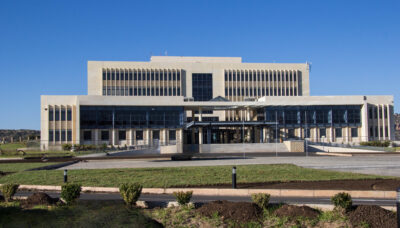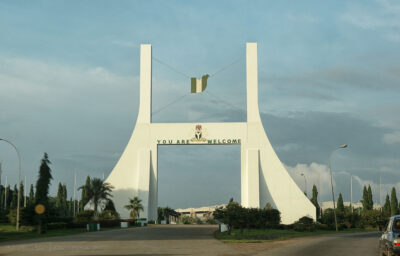The idea of “karmic historiography” is new to me. Karma at minimum means that sentient beings are in some way benefited or burdened by the consequences of either their own previous actions and/or the actions and institutions of their elders and/or previous generations. Thus, I infer that karmic historiography would be the study of how outcomes are determined (or over determined) by such actions and institutions and are only partially influenced by present-day choices.
Many “natal” Buddhists treat karma as a law of nature, while many Western converts treat it as a metaphor: What goes around comes around, and antisocial behavior will eventually come back to bite you. After all, the antisocial actor still has to live in the world he or she is helping to make a little worse, and making the world a bit nicer/better/less filled with suffering seems very likely to redound to one’s own benefit and to the benefit of one’s children, grandchildren, and so on.
It seems to me that the question of the status of karma/rebirth should be of great significance for karmic historiography. If karma is a law of nature, then it seems that everyone who is alive has precisely the life that their previous actions have led to. We can and should try to relieve suffering we encounter, but criticizing the state of the world, or of individuals, as unjust or unfair is effectively precluded—no one has grounds for bemoaning their own situation since they chose it, albeit in a previous a life.
If instead karmic historiography treats karma as a metaphor, it avoids those problems but inherits new ones, particularly the problem of false consciousness. Thus, karmic historiography may well provide accurate, helpful insight into how trauma is passed from generation to generation or how events in deep history are still affecting people today. But if we cite karmic forces as explaining the behavior of people alive today, we run the risk of attributing to them false consciousness, in which although they appear to themselves to be agents acting in their best interests (as well as they can), they are really the products of some karmic antecedent, and their subjective experience of agency is a delusion.
Although he does not claim to be engaged in karmic historiography, recent writing by Father Greg Boyle, best known for his gang-intervention work with Los Angeles’s Homeboy Industries, illustrates these concerns. His work with recovering gang members is based on a practice of unconditional love and cherishing, which Father Greg explicitly roots in many faith traditions—his own Jesuit Catholicism, as well as Buddhism, Islam, and the broad mystical and ecstatic tradition. In his 2024 book, Cherished Belonging: The Healing Power of Love in Divided Times, he, in part, attempts to bridge the gap between this retail-level work with former gang members and the wholesale level of American political culture. I argue that this effort fails for two important and revealing reasons. First, it assumes a greater degree of normative agreement than seems likely in a large, heterogeneous society, which is, on my view, more likely to be characterized by intractable moral and political pluralism. Second, even though he is aware of and attentive to this issue, his argument falls into the false consciousness trap by attributing causes for behavior that the people in question would reject and take offense at. I suggest that both problems need careful attention in any attempt at karmic historiography.
Homeboy Industries proceeds from the belief that every human being is already perfect and morally good. It is true, however, that some or even many of us are estranged from ourselves and our fundamental goodness, due to varying degrees of hopelessness, trauma, and mental illness, the deadly trio that Father Greg argues fuel gang culture. It is these causes that create a tragic, karmic link between generations of gang members: hurt people hurting people. The goal of Homeboy is to help former gang members become healing people healing people and break the intergenerational transmission of their wounds. (To be clear, the connection between Father Greg and karmic historiography is my analysis and choice of words, not Father Greg’s.)
In Cherished Belonging (particularly chapter 2), he makes several related claims about politics. First, hatred only breeds hatred and hating the “correct” people is still hating. Second, the only thing that reduces and ultimately eliminates hatred is love: Seeing and afforming that everyone is good, everyone is worthy, everyone is part of “us.” Third, hopelessness, trauma, and mental illness explain all divisive and antisocial behavior, from petty theft to genocide. Fourth, creating a culture of cherished belonging is the only solution to the problems created by both entrenched social divisions and by the hopelessness, trauma, and mental illness of current generations, which generate fresh divisions and violence.
If we can’t quite swallow that the problems of our society are all caused by hopelessness, trauma, and mental illness, Father Greg asks: Which of the various contested parts of our political and social practices and institutions are you willing to defend as the products of a well, healthy, whole people? Mass shootings are easy—no well person kills strangers indiscriminately. Xenophobic hatred is also an easy case.
But immigration, I would argue, is more complicated, as are many of the most divisive issues in contemporary American society. While I hope that everyone can agree that no well person thinks that uprooting families and whole communities to deport them is an intrinsically good thing, I can imagine someone who defends it as the least-bad policy option. Following this line of reasoning, deportation is obviously harmful but so is having laws that neither US residents nor various levels of government will respect and enforce. Further, in this view, open borders would also be a bad thing. Even if we believe that recent levels of immigration are a net positive economically (or culturally, or morally, or all three), there is a point at which the level of immigration becomes a net negative, and as it seems clear that there is an effectively unlimited number of noncitizens who would like to immigrate to the US and to many countries in Europe, this isn’t a hypothetical concern. (Just to acknowledge a point that I don’t have space to discuss here: Many would-be immigrants to the US and Europe are trying to escape bad conditions created or exacerbated by the policy choices of their would-be destination countries, which adds to the moral complexity of their migration.)
If we hope to have a future that includes a strong economy with full employment, open spaces and parks, manageable cities and commutes, and so on, then we need an immigration policy that limits how many people can come in each year, we need some effective way to exclude everyone else, and allowing everyone who is here without legal permission to stay sets a terrible precedent. It might grieve someone who holds this view to see so much suffering among their (former) neighbors, but they might reasonably conclude that all the other options would cause even more suffering.
There are many, many reasons that one might disagree with this line of thinking, but the point I want to emphasize is that the view I have sketched is not merely the product of hopelessness, trauma, and mental illness. Rather, it is one side of exactly the kind of reasonable, rational, profound disagreement about policy that we would expect to find in any large, heterogeneous society, even if reasonable, rational disagreement has recently become distressingly scarce.
Politics is what happens when we don’t all agree about who should have what and why—that is, when a group of people form one society but do not also form one community with a shared set of values. Politics is the realm in which people with different moral commitments negotiate (not always peaceably or with equal voices) the conditions of how they will coexist. Visions of normative unanimity are not merely utopian in the sense of being unlikely; they are utopian in the sense of only being viable with a degree of agreement on ends that simply does not exist in large societies. They are inevitably antipolitical because they are premised on the existence of a society-as-community, in which politics would be both unnecessary and undesirable. That might indeed be a better world, but it is not the world we live in.
Donald Trump’s two terms as US president make recognizing the fundamental reasonableness and rationality of varying political philosophies much harder, because Trump valorizes bullying and bluster, and effectively hinders telling the truth or recognizing honest, principled disagreement. Many US voters seem delighted by this turn of events, and it can be tempting for those who believe otherwise to diagnose this approach to politics as evidence of mental illness, myopia, or plain stupidity.
But to do so would be to make the very mistake that Father Greg recognizes and counsels us to avoid—treating some of “us” as unalterably “them.” If we seek to overcome hatred through love, surely it would be a mistaken first step to describe those we initially see as “other” in terms that they find insulting and demeaning or to attribute to them a false consciousness. And even if we think that loving everyone makes for a better ethics than it does a politics, insulting those with whom we disagree still seems like a self-defeating first move toward achieving reasoned cooperation despite difference.
Why does Father Greg’s explanation turn out to be so problematic at the political level, especially given the demonstrable success of Homeboy? As he mentions in several places in Cherished Belonging, when we are trying to explain someone’s antisocial behavior, we have only two general categories of explanation: (a) The person is evil; (b) the person is mentally ill. The problem arises when we try to use this analysis to understand the actions of real human beings who are alive today. Neither attribution can be the basis for deepening our relationship with them unless they have already come to the same conclusion about themselves. Gang members seeking a way out already think there is something wrong with the gang life, and some of them are willing to accept Father Greg’s explanation and help. People who merely vote for someone controversial or for someone who has promised to do things that are antisocial if elected, have not decided that how they are living currently is wrong, are not looking for a diagnosis, and would reject the premises of Father Greg’s madness/evil dualism, at least as regards themselves. Father Greg has left us no room to merely be mistaken or to disagree because we hold different existential truths sacred.
It seems to me that the issues of assumed moral agreement and false consciousness are dangers in any effort at karmic historiography, though they need not be fatal to the enterprise. Historians are used to the dangers of attributing nonagentic causes to the actions of people, and at some level of generality such explanations often seem compelling. The closer to our own present moment that karmic historiography comes, however, the greater the danger of overreach.
The problem of assumed moral agreement is more subtle for karmic historiography: Identifying karmic or nonhuman causes as substantially affecting human behavior assumes that absent such forces, some people would act differently, and implicitly in ways that would not attract our attention. That is, they would act more like “us.” This problem is hardly unique: Every attempt to explain human behavior by reference to larger forces beyond the control or even the knowledge of the actors threatens to tip into a false-consciousness argument, and such arguments only make sense if we think the behavior being explained is extraordinary but would revert to some norm if the extrahuman force were to go away. The best that we can do is to be alert to, honest about, and self-critical of the kinds of danger that our work encounters and try to avoid them.













